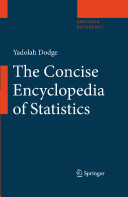Combinatory Analysis in the IChing
Combinatory analysis refers to a group of techniques that can be used to determine the number of elements in a particular setwith- out having to count them one-by-one. Theelements in question could be the results froma scientific experiment or the different potential outcomes of a random event.
[...]
Combinatory analysis has interestedmathe- maticians forcenturies.According toTakacs (1982), such analysis dates back to ancient Greece. However, the Hindus, the Per- sians (includingthe poet andmathematician Khayyâm, Omar) and (especially) the Chi- nese also studied such problems. A 3000 year-old Chinese book “I Ching” describes the possible arrangements of a set of n elements,where n ≤ 6. In 1303,Chu, Shih- chieh published a work entitled “Ssu Yuan Yü Chien” (Precious mirror of the four elements). The cover of the book depict- sa triangle that shows the combinations of k elements taken from a set of size n where 0 ≤ k ≤ n.
Notes:
And in another ancient Chinese text.
Folksonomies: history mathematics statistics
Taxonomies:
/religion and spirituality/hinduism (0.308486)
/technology and computing/enterprise technology/data management (0.261775)
/art and entertainment/books and literature/poetry (0.241184)
Keywords:
combinatory analysis (0.908302 (negative:-0.100772)), ancient Chinese text (0.769029 (positive:0.232982)), different potential outcomes (0.759123 (positive:0.208528)), Ssu Yuan Yü (0.750359 (neutral:0.000000)), year-old Chinese book (0.728144 (positive:0.228309)), Chi- nese (0.608926 (neutral:0.000000)), Shih- chieh (0.602932 (neutral:0.000000)), scientific experiment (0.594658 (positive:0.208528)), random event (0.591886 (positive:0.208528)), interestedmathe- maticians (0.585607 (neutral:0.000000)), sa triangle (0.580659 (neutral:0.000000)), possible arrangements (0.579756 (positive:0.345351)), Precious mirror (0.579622 (neutral:0.000000)), ancient Greece (0.577308 (neutral:0.000000)), elements (0.493602 (negative:-0.333754)), IChing (0.472578 (positive:0.232982)), set (0.458520 (positive:0.345351)), Hindus (0.451210 (neutral:0.000000)), Chien (0.447843 (neutral:0.000000)), Omar (0.445223 (neutral:0.000000)), combinations (0.439090 (neutral:0.000000)), group (0.435253 (negative:-0.333754)), techniques (0.435210 (negative:-0.333754)), number (0.435041 (negative:-0.333754)), question (0.434691 (positive:0.208528)), Theelements (0.432704 (positive:0.208528)), results (0.432584 (positive:0.208528)), toTakacs (0.431530 (neutral:0.000000)), sians (0.430845 (neutral:0.000000)), poet (0.430787 (neutral:0.000000))
Entities:
Ssu Yuan Yü Chien:Company (0.921671 (neutral:0.000000)), Shih- chieh:Person (0.694423 (neutral:0.000000)), Chi- nese:GeographicFeature (0.686630 (neutral:0.000000)), Greece:Country (0.581928 (neutral:0.000000)), andmathematician Khayyâm:Person (0.554547 (neutral:0.000000)), Omar:Person (0.517454 (neutral:0.000000)), 3000 year:Quantity (0.517454 (neutral:0.000000))
Concepts:
China (0.976510): geo | dbpedia | ciaFactbook | freebase
Chinese language (0.723577): dbpedia | freebase | opencyc | yago
I Ching (0.718016): dbpedia | freebase | yago
Science (0.698049): dbpedia | freebase | opencyc
Chemical element (0.687637): dbpedia | freebase
Ancient Rome (0.606810): dbpedia | freebase | yago
Chemistry (0.602927): dbpedia | freebase | opencyc
Combinatorics (0.582817): dbpedia | freebase | opencyc





